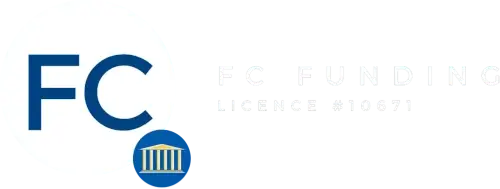Buying a home is usually one of the largest financial transactions a person will enter into in their lives. Homeowners can save time, money and stress by knowing their options and understanding the process. Unfortunately, there is a lot of misinformation around out there. Here are the top 5 mortgage myths I encounter when speaking to new clients and the truth behind the myths.
Myth: 5% down payments are only for first-time home buyers
Fact: you are able to put as little as 5% down, when purchasing a home for personal use, whether its your first home or your tenth. To do this, you will need to obtain default insurance.
A home that is purchased for $500,000 or less, requires a 5% down payment. If the home you are purchasing is between $500,001 and $999,999, you will need 5% down on the first $500,000 and 10% down on the amount over $500,000. For example, if you are purchasing a $650,000 home, you will need a minimum down payment of $40,000.
(500,000 x 5%) + (650,000 x 10%) =
25,000 + 15,000 =
40,000
You will need a 20% down payment to purchase an investment property or a home valued at $1,000,000 or more.

Myth: you need to be debt-free to be approved for a mortgage
Fact: lenders will look at income and monthly obligations, when deciding whether to approve a mortgage application. This includes credit card payments, loan payments, car payments child support, and alimony . You will need to demonstrate that you can afford the new monthly home and mortgage costs. Conventional lenders typically allow for up to 39% of your gross (before-tax) income to be used for shelter costs. This includes the mortgage payment as well as property taxes and heating expenses. Up to 44% of your gross income can be used for all of your monthly debt payments, including the housing costs. Your mortgage approval amount will have to be decreased to ensure that monthly expenses to not exceed 44%, if your monthly debt payments add up to more than 5% of your gross income, .
It is possible to obtain mortgages that exceed these ratios. These mortgage will usually require a minimum of 20% down payment and have higher interest rates and fees.
Myth: you have to have good credit to buy a home
Fact: there are plenty of lenders that will provide mortgages to clients with bruised credit including clients with previous bankruptcies, consumer proposals and collections. If damage to credit was recent and/or credit has been reestablished for a period of time after the occurrence (often 2 years), you may even be able to obtain a mortgage through a bank or traditional lender.
If damage was more recent and credit has not been reestablished you may still have options with alternative lenders. There are even lenders that will provide you with a mortgage while you have an ongoing consumer proposal. These types of lenders will require a minimum of 20% down payment and will have higher rates and fees as compared to traditional lenders.

Myth: the lower interest rate is always the best option
Fact: interest rate is just one factor in determining whether or not a mortgage is suitable and how much the mortgage will cost overall. Often times, the lowest interest rate mortgage products have terms that limit what a borrower can do with their mortgage after closing. For example, many banks and traditional lenders offer low-rate mortgage options that come with a bona fide sale clause. This clause specifies that a borrower may not pay the mortgage out before the end of their term unless they sell the home or refinance with the same lender. This can prevent borrowers from breaking their mortgage and moving to a new lender that is offering a better rate.
Lenders may also offer higher interest rates on mortgages in exchange for a lump sum of cash on closing. These are called cash-back mortgages. The cash can be used to pay off higher rate debts which can help with approval and lower monthly costs. The cash back can also be used for some of the fees associated with buying a home and therefore can allow buyers to enter the real estate market sooner as compared to if they had to wait and save up the funds on their own.
Additionally, there can be fees related to the mortgage that should be considered in addition to the rate. Lender fees, broker fees and administration fees should all be disclosed to you along the Annual Percentage Rate (APR). The APR will tell you the overall cost of borrowing the funds after all fees and costs are considered.
Finally, different mortgage terms will have different interest rates. The rate for a 5-year mortgage is significantly lower than the rate for a 2- or 3-year mortgage. The lower interest rate of the 5-year term will certainly save you money initially. However, it may cost you more over the long-term. If rates decrease in the coming years you would have to pay a prepayment penalty to get out of your current rate.
Myth: home ownership is the best choice for everyone
Fact: there are very few choices that are right for absolutely everyone and home ownership is no exception. Owning a home can provide a degree of stability. However, not everyone is at a stage in their life where stability is an asset. Having to purchase and sell a house may prevent you from taking advantage of higher-paying job opportunities. A renter may be able to more easily move to take advantage of new job opportunities. Home ownership also has many hidden costs such as maintenance and increased insurance costs as compared to renters insurance.
For those that are renting and have been in the same location for a long time rent may be very low. For these people, reduced shelter expenses could allow for investing larger amounts of money into investments. Of course this requires discipline. For those that are less disciplined, owning a home can mean forced savings. As mortgage payments are made, they reduce the mortgage balance and increase the home-owner’s net worth. However, this net worth is not liquid. Accessing equity requires either selling your home or re-borrowing and likely being faced with more monthly payments.




